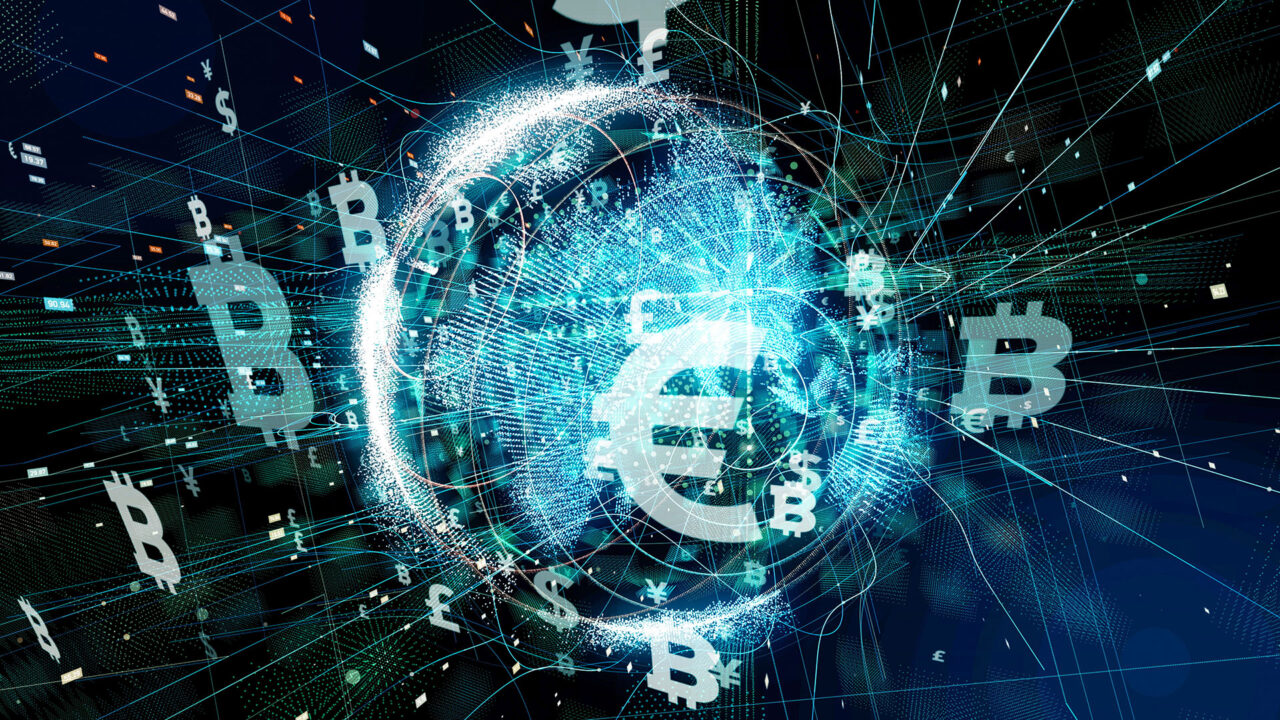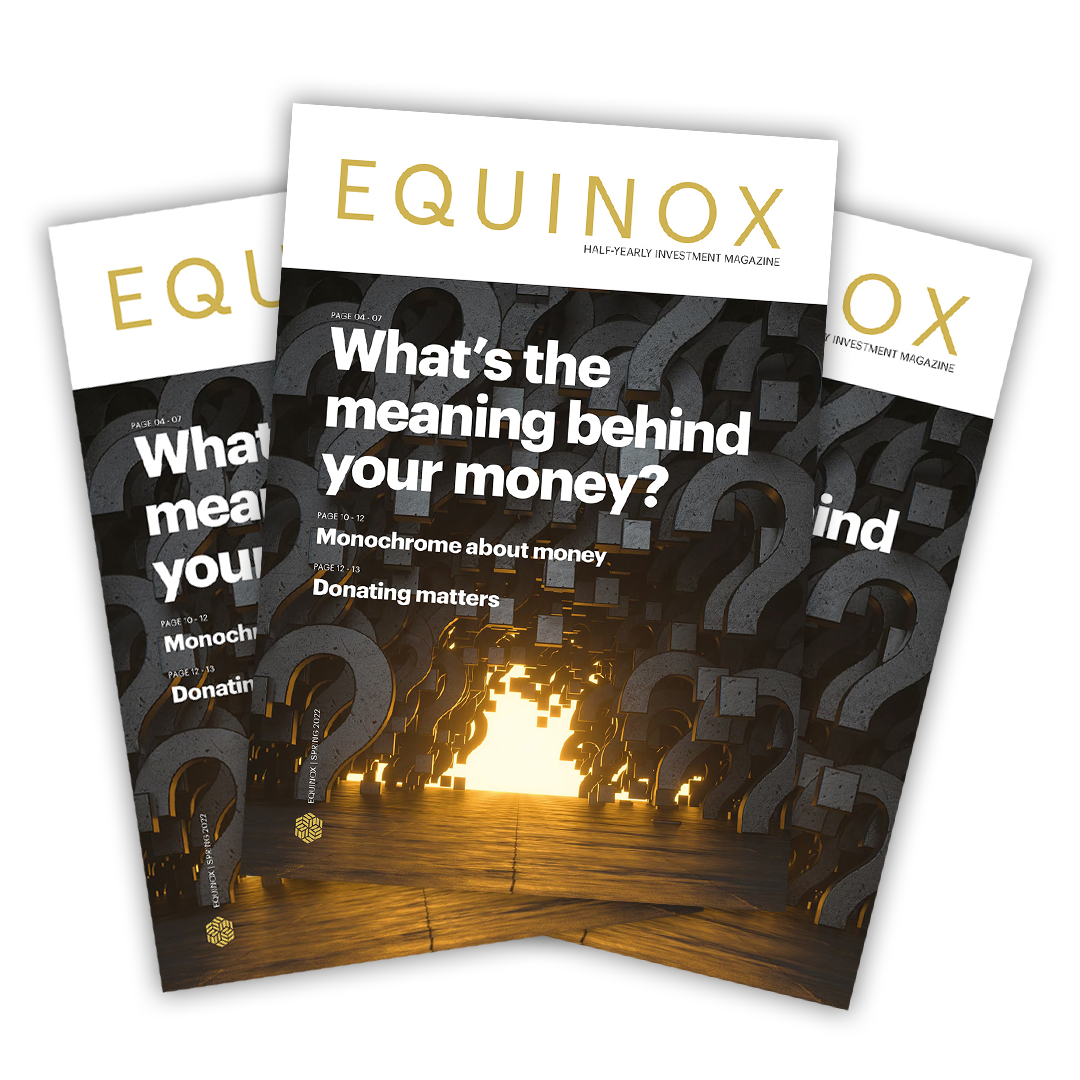What is it?
Your friend Bob sends you a cheque for £100, you take it to your bank and the cashier tells you it will take seven working days to clear. Why? Essentially, because Bob’s bank and your bank are two big databases of customer accounts that don’t speak to each other and don’t trust each other. This is also the reason why, for example, it costs so much to send money abroad and takes two days to settle share transactions.
The blockchain concept was originally conceived in 1992 and eventually developed as a way of having a single ‘decentralised’ database that every bank (or participant) can access and is so secure that it can be trusted by everybody.
(Note: Bitcoin, which was invented 18 years later, is a digital currency that trades on a blockchain, but we will cover this in a future ‘in a nutshell’).
How will Bob send you £100 in digital currency using blockchain? Using an app on his phone, he sends a message to all the blockchain computers that effectively says, “I want to send £100 to you”. His app will store a unique password so that the network knows the message is coming from him and not from anyone else.
Computers in the blockchain can easily confirm that Bob has the money to send because they all share the same database with his digital cash balance. At this point, the sending of the £100 has only been proposed and the message will be on hold until it is sent to all blockchain participants.
For the slightly more technically minded, these proposed transactions are bundled into bunches of 500 which are called ‘blocks’. These blocks are put together by using complicated mathematical algorithms which are computed by ‘miners’ – a misnomer. They are just banks of computers looking to ascribe each block a code and in return will get a small fee for each one they successfully compute. Each block is connected by code to the last block submitted, which is why it is described as a blockchain.
The completed block (which will include Bob’s £100) is sent to all the blockchain participants and, as long as less than 50% reject it, it will be entered into the database and Bob’s money will be transferred to you. For Bitcoin, blocks are settled about every 10 minutes, considerably faster than the 7 working days for a cheque.
What is it good for?
Secure and verifiable transmission of data.
Bitcoin has grabbed all the headlines, and the rapid growth of cryptocurrencies is spurring interest in blockchain, but it has much wider potential in financial markets, from simple payments to trading in digital and real assets like shares and bonds.
90% of Europe and the US are now researching blockchains and there are estimates that consumers could save up to $16 billion in banking and insurance fees each year through blockchain-based applications.
The shared nature of the blockchain is beginning to spawn a new industry of ‘decentralised finance’ companies or ‘DeFi’, for short.
Away from finance, there are plenty of potential areas of interest including healthcare providers that can securely store their patients’ medical records. The food industry is increasingly adopting blockchain to track the path of food throughout the farm-to-user journey and other areas are growing rapidly such as cross-border payments, property rights, smart contracts and even electoral voting.
Is it bad?
There is nothing inherently bad about a blockchain any more than there would be nefarious uses of a database.
There are two particular issues with blockchains; firstly, the decentralised nature does make it harder for regulators, especially financial regulators, to monitor and clamp down on criminal activity like money laundering and fraud.
Secondly, depending on how secure it needs to be, the electricity required for ‘miners’ to compute the code for each block can be very high. That said, researchers are building blockchains now with algorithms that allows performance scalability without ramping up energy consumption levels.
Do we invest in it?
Not directly.
Most of the suppliers of blockchain software are small, private companies and we have no holdings in the very few that we could invest in.
That said, we do hold investments in companies that are exploiting this new technology. Some of the companies that have already incorporated blockchain into their operations include FedEx, IBM, Burger King, Mastercard, Walmart, Pfizer, AIG, Siemens and Unilever, all of which are held in the portfolios (apart from Defensive).
Whilst we do not invest in these companies simply because they use blockchain, the potential efficiencies of using this technology could help them stay ahead of competition.
Future prospects?
Positive. Leaving aside the hype around cryptocurrencies, this technology has the scope to provide a secure way of verifying ownership and facilitating the transfer of assets in a digital world.


